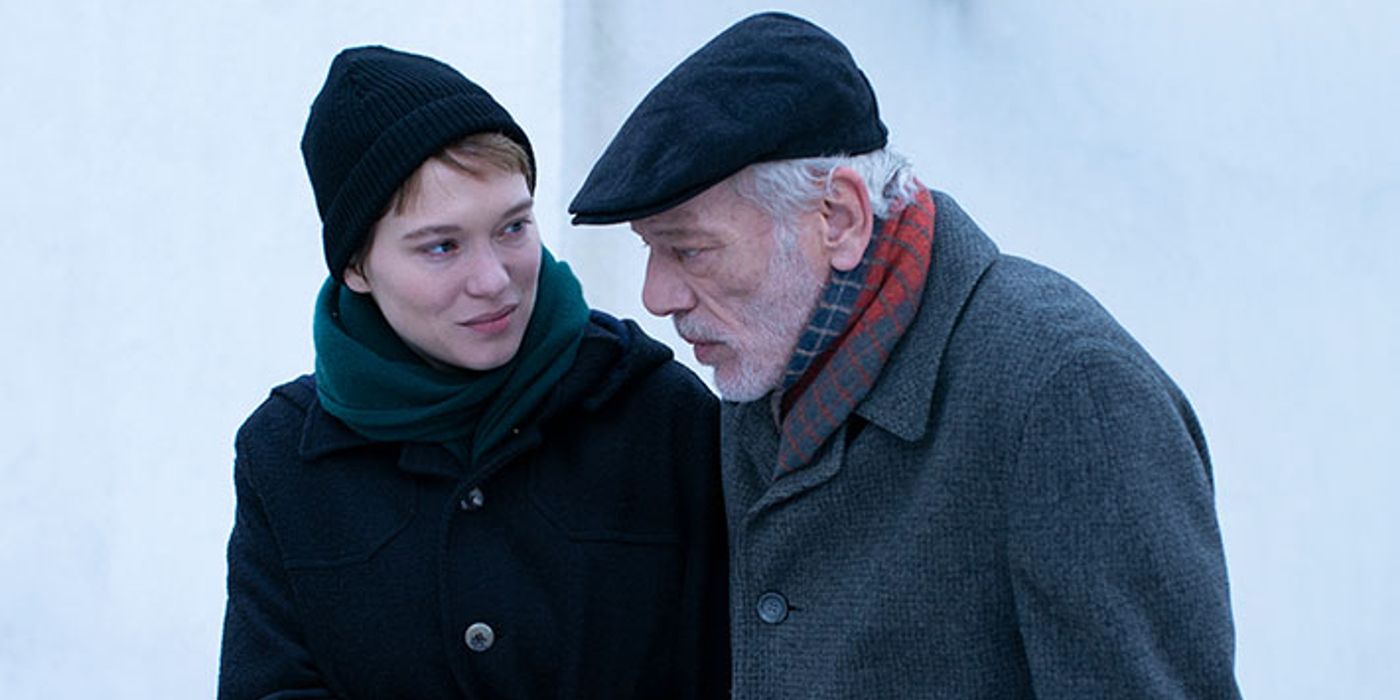There is a sense of smallness to Mia Hansen-Løve’s One Fine Morning (Un beau matin) that is part and parcel of its intent as an artistic project. The film is contained within the scope of one woman’s life, which is itself fairly contained, both by circumstance and by choice. Things happen that in other movies might be heightened for drama or intrigue, which here are instead presented as ordinary. It’s not that they aren’t dramatic or intriguing, but they exist as part of a quilt of segmented moments, each given as much weight as the other. The audience, once settled into its gentle rhythm, gets to see how the various, compartmentalized aspects of one’s daily life are in fact always connected, stitched together by real-time as they are here by the edit. If One Fine Morning offers no great revelations, it is full of echoes, parallels, and sparks that leave the viewer activated beyond its runtime, perhaps engaging with the world a little more thoughtfully than they were before watching.
Sandra (Léa Seydoux) is many things: Professional interpreter, fluent in English and German in addition to her native French; single mother to an eight-year-old daughter, Linn (Camille Leban Martins); child to Georg (Pascal Greggory), a retired professor whose neurodegenerative disease is on the brink of requiring around-the-clock care. She gives herself over to these roles in her life, perhaps to a fault, until she runs into Clément (Melvil Poupaud), an old friend with whom she feels an instant connection. The feeling is mutual, and with Clément unhappy in his marriage, the two start an affair — Sandra’s first relationship since her husband died five years prior. When layered onto the slow grief of her father’s deterioration and stresses of arranging his care, the emotional tumult of this affair (passionate, but sporadic and tinged with guilt) pushes her own feelings to the surface, where she cannot but confront them.
In One Fine Morning the editing reigns supreme. Scenes are usually short and end with a hard cut, simultaneously encouraging the viewer to see the different pieces of Sandra’s life as distinct and demonstrating their interconnectedness. This rhythm serves as a great equalizer, with the film’s form declining to single moments out and instead letting Sandra, through Seydoux’s performance, show which are the most important. These mostly end up being instances of emotional bleed, when one strand of her life (usually without warning) intersects with another. As shaken as she is by her father’s decline, she can keep her composure when she’s actually with him, but waves of that sadness will overcome her at unexpected times. Seydoux hits just the right notes in these scenes to keep the film true to the everyday. She anchors One Fine Morning with a sincerity of expression that shows the well of feeling Sandra carries without ever needing to put it completely on display.
The way Hansen-Løve structures the storytelling also serves as an effective way to meditate on the experience of losing one’s parent to a degenerative illness, and its many nuanced layers. Sandra’s interactions with Georg are so clearly mirrored by those she has with Linn, in that she, acting as caretaker, has to essentially parent her father. The script only allows itself the exposition that would make for believable dialogue at the moment, and details of who Georg was before his illness accumulate slowly, each one adding color to the acuteness of Sandra’s loss. The question of her father still being there at all is raised, and the film even gives him a compelling, slippery metaphor for his own experience.
There are also moments in their conversations that oscillate between tragic and comedic, as is often the case in reality, and the audience won’t be sure whether to laugh or cry. The process of being handed puzzle pieces and needing to assemble them oneself proves stimulating, and while One Fine Morning asks more questions than it answers, there’s a certain truth in that, too. Something like what Georg and Sandra are experiencing, while certainly not unique, is too big to be fully understood. To come away having made any kind of sense of it feels like a victory.
Given its minute scope, the movie comes close to overstaying its welcome at almost two hours long, but it offsets any potential antsiness with strong visual composition. There is a warmth to One Fine Morning‘s cinematography that makes one want to stay in its embrace. The production design and costuming are organized around strong, primary colors, which seem to reflect Sandra’s emotional state — at the very least, she certainly wears reds when Clément has reignited her dormant passion. As much as the film strives to remain down-to-earth, the world still appears filtered through the perspective of an artist, and thankfully so. This world projects care for its characters, as if all that’s needed to make their challenges more bearable is to stop and notice the beauty in the way everything is arranged. It’s a comforting sensation to walk away with after the credits roll.
One Fine Morning released in theaters Friday, January 27. The film is 112 minutes long and is rated R for some sexuality, nudity and language.



